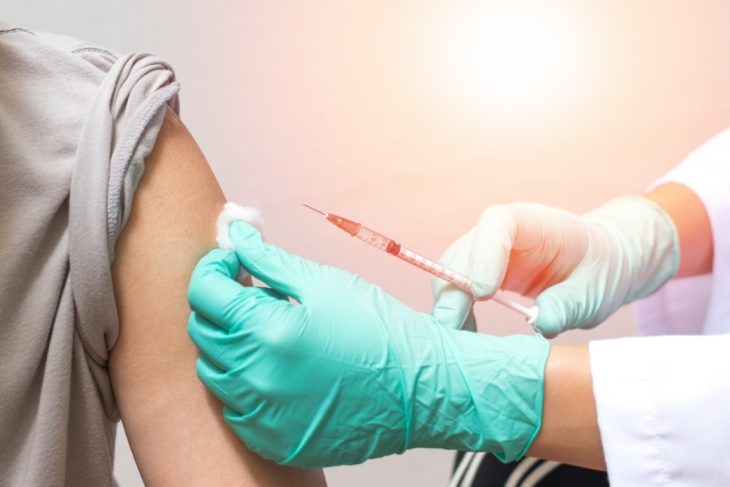
Dysfunction of the immune system can wreak havoc on your body’s finely tuned system of checks and balances. In the case of autoimmune diseases the immune system goes into overtime, and your body begins to attack, and destroy, its own healthy tissue. When your immune system is deficient your body’s natural defenses are compromised, and unable to thwart invading bacteria, leaving you vulnerable and at high risk for infection.
What Causes Immune Problems
For those who are afflicted with an autoimmune disease, such as lupus, thyroid disease, rheumatoid arthritis, MS, type 1 diabetes, and several other chronic conditions, day-to-day life can be difficult. Treatment focuses on reducing the over-activity of the immune system and management of the disease is possible through medication.
In the case of an immune deficiency, or immunodeficiency disorders, there are two distinct types. Primary immunodeficiency is something you’re born with, or is genetic. There are hundreds of immunodeficiency disorders identified as primary, however they are fairly uncommon.
Secondary immune deficiencies are caused by a serious infection, or a toxic chemical, for instance chemotherapy, radiation, severe burns, malnutrition, certain cancers, AIDS, and viral hepatitis. Exposure to those chemicals and viruses attack your immune system, rendering it weak in the face of infections. Anything that weakens your immune system can have a lasting effect in the form of an immunodeficiency disorder, such as removal of your spleen or treatment for certain diseases.
How Immune System Disorders Impact Fertility
Immune disorders can affect your fertility in a few different ways. In the case of autoimmune disease, your body seeks to attack not only foreign invaders, but also non-foreign tissue it wrongly identifies as a threat. This creates serious inflammation in your body, which can prevent ovulation. Furthermore, as your body goes on the attack, it can make conception impossible by destroying sperm, and even embryos, which it perceives as a threat.
A strong, balanced immune system is vital in pregnancy as it helps the uterus accept and nurture the embryo. Your immune system is responsible for triggering certain blood vessels necessary in creating and growing the placenta to facilitate the healthy development of your baby. In addition to increasing your risk for infection and disease, a weakened immune system may not be able to support a pregnancy.
How Immune Problems in Infertility Are Treated
When you are aware you have an immunodeficiency disorder, or an autoimmune disease, you need to seek out a physician who specializes in fertility treatment. Abnormal immune function will work against your attempts to conceive, and significantly increase your risk for miscarriage.
Both issues must be treated by your physician. It wouldn’t make much sense to encourage conception through fertility treatment, only to miscarry after, so the approach is two-tiered.
For those who aren’t aware of any immune problems, yet are experiencing infertility or recurrent miscarriage, a diagnosis is made after testing. Testing for immune problems in infertility isn’t routine and usually occurs only in cases of recurrent loss of pregnancy, or multiple failed rounds of IVF in which the embryos have been found to be viable and of good quality but pregnancy does not result. In the case of true unexplained infertility your physician will also test for immune disorders.
Treatment for infertility related to immune disorders is not a one-size-fits-all proposition and will be tailored to suit your specific needs. In most cases IVF and closely monitoring the pregnancy will result in a successful outcome.
Signs You May Have an Immune Disorder
Many women who experience infertility are dealing with an immune disorder. There are several symptoms but the most common ones are:
- Muscle and joint pain and tenderness or swelling
- Difficulty concentrating
- Allergies
- Digestive issues
- Ongoing, or recurrent illnesses
- Changes to the skin; unexplained rashes
- Imbalance in blood sugar (hypoglycemia)
- Extreme fatigue
If you experience any if these symptoms and are having difficulty conceiving naturally after one year of regular, unprotected intercourse, be sure to alert your doctor.
What You Can Do Now
For those who know they have an autoimmune disorder, or immunodeficiency, or are undergoing testing to determine such, you don’t need to feel as though it’s completely out of your hands. There are some things you can do to improve your immune system and prepare for a healthy pregnancy.
- Eat a diet rich in organic, nutrient-dense foods close to the source. Limit, or better yet, eliminate processed foods and fast food. Up your protein intake, including a high-protein breakfast of 20-30 grams of protein within an hour of waking up.
- Yoga will ease the burden on your joints and your mind. Reduce stress through exercise (doctor approved) and meditation. Limit stress-inducing activities (social media?), and practice relaxation techniques.
- Supplements are a great way to ensure your body is getting what it needs to support and strengthen your immune system. Don’t wait to become pregnant to begin your prenatal vitamins. Folic acid is essential for a healthy pregnancy, and you should consider probiotics to balance your body’s bacteria and improve digestion. Always check with your doctor before taking any supplements.










